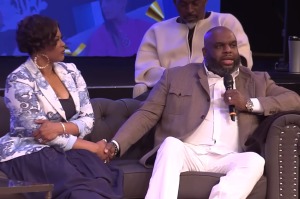Don't Confuse Knowledge, Success in Ministry With Maturity
I didn't just give way to the temptation to let pastoral ministry become my identity. I fell into two other temptations as well.
I let biblical literacy and theological knowledge define my maturity. This is related to the identity temptation but requires its own attention. It is quite easy in ministry to give into a subtle but significant redefinition of what spiritual maturity is and does. This definition has its roots in how we think about what sin is and does. Many pastors carry a false definition of maturity that results from the academic enculturation of seminary.
Since seminary tends to academize the faith, making it a world of ideas to be mastered, students easily buy into the belief that biblical maturity is about precision of theological knowledge and biblical literacy. But spiritual maturity is not something you do with your mind (although that is an important element). Maturity is about how you live your life. It is possible to be theologically astute and immature. It is possible to be biblically literate and in need of significant spiritual growth.
I was an honors graduate of a seminary. I won academic awards. I assumed I was mature and felt misunderstood and misjudged by anyone who failed to share my assessment. In fact, I saw those moments of confrontation as persecution that anyone faces when he gives himself to gospel ministry. At root I misunderstood sin and grace. Sin is not first an intellectual problem. (But it does affect my intellect, as it does all parts of my functioning.) Sin is first a moral problem. It is about my rebellion against God and my quest to have, for myself, the glory due to him. Sin is not first about the breaking of an abstract set of rules. Sin is first and foremost about breaking relationship with God. Because I have broken this relationship, it is then easy and natural for me to rebel against God's rules.
So it's not just my mind that needs to be renewed by sound biblical teaching, but my heart needs to be reclaimed by the powerful grace of the Lord Jesus Christ. The reclamation of my heart is both an event (justification) and a process (sanctification). Seminary, therefore, won't solve my deepest problem – sin. It can contribute to the solution, but it may also blind me to my true condition by its tendency to redefine maturity. Biblical maturity is never just about what you know but always about how grace has employed what you have come to know to transform the way you live.
Think of Adam and Eve. They didn't disobey God because they were intellectually ignorant of God's commands. They knowingly stepped over God's boundaries because they quested for God's position. The spiritual war of Eden was fought on the turf of the heart's desires. Consider David. He didn't claim Bathsheba as his own and plot to get rid of her husband because he was ignorant of God's prohibitions against adultery and murder. David acted because at some point he didn't care what God wanted. He was going to have what his heart desired no matter what.
Or think what it means to be wise. There is a huge difference between knowledge and wisdom. Knowledge is an accurate understanding of truth. Wisdom is understanding and living in light of how that truth applies to the situations and relationships of your daily life. Knowledge is an exercise of your brain. Wisdom is the commitment of your heart that leads to life transformation.
Even though I didn't know it, I walked into pastoral ministry with an unbiblical view of biblical maturity. In ways that now scare me, I thought I had arrived. So when my wife, Luella, would lovingly and faithfully confront me, it was not just that I was being defensive. By definition I thought she was wrong. And I became convinced she was the one with the problem. I used my biblical and theological knowledge to defend myself. I was a mess, and I had no idea.
Success Is Not Necessarily an Endorsement
I confused ministry success with God's endorsement of my living. Pastoral ministry was exciting in many ways. The church was growing numerically, and people seemed to be growing spiritually. More and more people seemed to be committed to be part of a vibrant spiritual community, and we saw people win battles of the heart by God's grace. We founded a Christian school that was growing and expanding its reputation and influence. We were beginning to identify and disciple leaders.
It wasn't all rosy; there were painful and burdensome moments, but I started out my days with a deep sense of privilege that God had called me to do this ministry. I was leading a community of faith, and God was blessing our efforts. But I held these blessings in the wrong way. Without knowing that I was doing it, I took God's faithfulness to me, to his people, to the work of his kingdom, to his plan of redemption, and to his church as an endorsement of me. My perspective said, "I'm one of the good guys, and God is behind me all the way." In fact, I would say to Luella (this is embarrassing but important to admit), "If I'm such a bad guy, why is God blessing everything I put my hands to?"
God did not act because he endorsed my manner of living, but because of his zeal for his own glory and his faithfulness to his promises of grace for his people. God has the authority and power to use whatever instruments he chooses in whatever way he chooses. Ministry success is always more a statement about God than about the people he uses for his purpose. I had it all wrong. It took credit that I did not deserve for what I could not do. I made it about me, so I didn't see myself as headed for disaster and in deep need for the rescue of God's grace. I was a man in need of rescuing grace. Through Luella's faithfulness and the surgical questions of my brother, Tedd, God did exactly that.
What about you? How do you view yourself? What do you regularly say to you about you? Are you different from those to whom you minister? Do you see yourself as a minister of grace in need of the same grace? Have you become comfortable with discontinuities between the gospel you preach and the way that you live? Are there disharmonies between your public ministry persona and the details of your private life? Do you encourage a level of community in your church that you do not give yourself to? Do you fall into believing that no one has a more accurate view of you than you? Do you use knowledge or experience to keep confrontation at bay?
You don't have to be afraid of what is in your heart. You don't have to fear being known. Because nothing in you could ever be exposed that hasn't already been covered by the precious blood of your Savior King, Jesus.





























